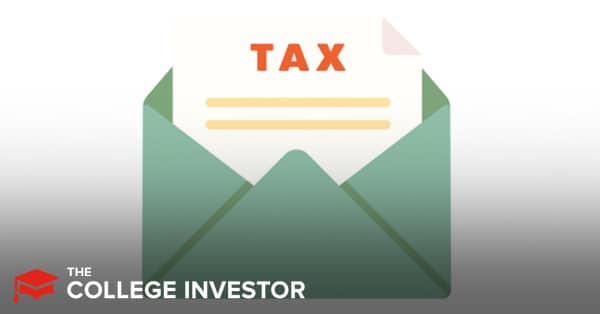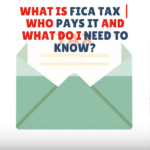
Figuring out taxes on your own for the first time? One of the most important types of taxes to understand are FICA taxes (also called payroll taxes). This is different than income tax, which you also pay, but this also comes out of your paycheck.
This is a tax you pay on every dollar of earned income (up to $168,600 for part of the tax), so it is important to understand it. Your employer also pays FICA taxes on you for every dollar earned - so many employers count FICA as part of their total compensation for an employee.
Here’s what you need to know about FICA taxes, and how they will affect your bottom line.
What Is FICA?
Federal Insurance Contributions Act (FICA) taxes are a type of tax called payroll taxes. They include a Social Security tax, and a Medicare tax which are intended to fund the Social Security and Medicare programs in the United States.
FICA taxes are paid in addition to other types of taxes such as the Federal income tax or your State income tax.
Who Pays FICA Tax?
By law, FICA tax payments are split between an employer and the employee. Each pays an equal share of the taxes.
If you work a typical job (where your employer gives you a W-2 at the end of the year), your employer will automatically deduct your share of the FICA taxes from your paycheck. It will send that share directly to the IRS for you. Additionally, your employer will pay its half of the tax directly to the IRS.
Self-employed people (including side-hustlers) must pay both the employer side and the employee side of the FICA tax.
What Is The Tax Rate?
Right now, the FICA tax is set at 6.2% for Social Security and 1.45% for Medicare. Both the employee and the employer must pay the 6.2% Social Security tax and the 1.45% Medicare tax. Together the FICA tax is 15.3% of all wages that you earn.
The social security tax is paid only on the first $168,600 of your income in 2024. That means if you earn $170,000, you won’t pay the 6.2% tax on the last $1,400 of your income. Your employer doesn’t have to pay its half of the Social Security tax on the last $1,400 of your income either. That’s a great tax break for high income earners.
However, the tax break doesn’t extend to the 1.45% Medicare portion of the tax. High income earners have to pay an additional 0.9% Medicare tax if their income exceeds certain thresholds.
In 2024, the thresholds were:
- $200,000 for a Single Filer (or Head of Household)
- $125,000 for married filing separately
- $250,000 for married filing jointly
Is All Income Subject To FICA Taxes?
FICA taxes are paid on all earned income (up to the $168,600 wage base mentioned earlier). Income from rent, certain types of royalties, capital gains and dividends are not subject to FICA taxes.
However, you have to pay the tax on all earned income including your salary, tips, commissions and anything else that counts as wages. Contributing money to your 401(k), and other deductions allow you to avoid Federal income taxes, but you will still have to pay payroll taxes (FICA) on that wage income.
There are only a few ways to avoid paying FICA on wage income. First, you can contribute to an HSA. You can also contribute to a Flexible Savings Account (FSA) for childcare, medical care or both. If you pay legitimate business expenses for a business you own, you do not have to pay FICA taxes for those expenses.
The only other exceptions to this rule include people who earn income in unique circumstances.
Some students, especially those working as Research Assistants or Teaching Assistants will not have to pay FICA on their stipends. Likewise, if you work for a foreign employer, and you live outside of the United States, you don’t have to pay FICA on that income. Finally, pastors and other ministers who elect to do so can opt not to pay payroll taxes on their ministry income.
How Do I Pay These If I'm Self-Employed?
If you are self-employed (including people who run a business on the side), you will need to pay your payroll taxes yourself as part of your quarterly tax estimates. You can either do this through payroll (if you're an S Corp), or you do this on your Schedule C at tax time.
Since self-employed people have to pay both sides of the payroll tax, the FICA tax burden is 15.3% of all income you earn as a self-employed person. On top of that, you’ll need to pay your Federal and state income taxes.
What If I Overpaid?
Most of the time, overpaying FICA taxes isn’t a problem when you have only one employer.
However, if you earned $100,000 from your main job, and $75,000 from a second job or side business, you could accidentally overpay your FICA taxes.
To receive a refund, you will need to claim a refund on line 69 of your 1040. Every major tax filing software and a good accountant will catch this issue for you. The software (or the accountant) will ensure that you request a refund for the appropriate amount on your taxes.

Robert Farrington is America’s Millennial Money Expert® and America’s Student Loan Debt Expert™, and the founder of The College Investor, a personal finance site dedicated to helping millennials escape student loan debt to start investing and building wealth for the future. You can learn more about him on the About Page or on his personal site RobertFarrington.com.
He regularly writes about investing, student loan debt, and general personal finance topics geared toward anyone wanting to earn more, get out of debt, and start building wealth for the future.
He has been quoted in major publications, including the New York Times, Wall Street Journal, Washington Post, ABC, NBC, Today, and more. He is also a regular contributor to Forbes.
Editor: Clint Proctor Reviewed by: Chris Muller
